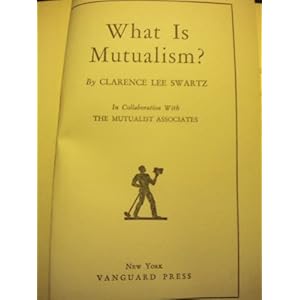Philippe Aigrain: Cause commune: l’information entre bien commun et propriété (2005) [French]
Filed under book | Tags: · capitalism, commons, digital human rights, economy, freedom of information, information technology, intellectual property, property rights, technology

L’information et ses technologies refaçonnent notre univers technique, social et éthique, mais ces bouleversements se font dans deux directions opposées selon que l’on choisit d’en encourager l’appropriation privée ou d’en faire des biens communs.
D’un côté, l’extension des domaines couverts par les brevets (molécules pharmaceutiques, variétés végétales, séquences génétiques, logiciels) restreint, pour le profit de quelques multinationales, l’accès à des ressources essentielles telles que les médicaments, les semences et l’information. La concentration des médias – notamment audiovisuels – menace la démocratie là où elle existe.
De l’autre côté, la production et le partage de l’information et des créations sont plus libres qu’avant, et la multiplication des échanges esquisse une société mondiale, diverse et solidaire. Les médias coopératifs, les logiciels libres, les publications scientifiques ouvertes et les autres biens communs réinventent la démocratie.
Comment les acteurs de ces nouveaux domaines peuvent-ils faire cause commune par-delà ce qui sépare les logiciels des ressources biologiques, ou l’art des sciences ?
Comment l’information peut-elle servir les biens publicssociaux de la santé, de l’éducation ou de la solidarité au lieu de contribuer à les détruire ?
Quelles alliances peut-on envisager entre les sociétés et les États, gardiens irremplaçables des biens communs épuisables que sont l’eau ou l’air ?
Dans cet ouvrage, Philippe Aigrain analyse les causes et les origines d’une situation paradoxale et les tensions qu’elle suscite. Il propose une politique qui remette les êtres humains aux commandes de ces transformations.
Publisher Fayard, 2005
Collection Transversales series
ISBN 2213623058, 9782213623054
283 pages
La version électronique du livre est mise à disposition sous un contrat Creative Commons BY-NC-ND.
author
publisher
series
google books
Clarence Lee Swartz: What is Mutualism? (1927)
Filed under book | Tags: · economy, libertarianism, liberty, money, mutualism, politics, property rights

A classic text on Mutualism.
“MUTUALISM – A Social System Based on Equal Freedom, Reciprocity, and the Sovereignty of the Individual Over Himself, His Affairs, and His Products; Realized Through Individual Initiative, Free Contract, Cooperation, Competition, and Voluntary Association for Defense Against the Invasive and for the Protection of Life, Liberty and Property of the Non-invasive.”
Written in collaboration with The Mutualist Associates
Publisher: Vanguard Press, New York, April 1927
Outlines of Social Philosophies series
238 pages
View online (HTML transcription)
PDF (PDF’d HTML transcription)
View online (book scan)
Elinor Ostrom: Neither Market Nor State: Governance of Common-Pool Resources in the Twenty-First Century (1994)
Filed under paper | Tags: · commons, economics, governance, natural resources, property rights
“Property rights and tenure issues are important to assure success in efforts to combine appropriate management of natural resources with productivity increases in developing-country agriculture. Failure to understand existing and alternative property-rights arrangements and how they work may result in inappropriate action by governments and nongovernmental organizations. Research to enhance such understanding is of critical importance and occupies high priority within the current five-year plan of IFPRI. While much attention is paid to the negative effects of free access to natural resources and the potential benefits from privatization of natural resource ownership, this lecture describes common-property institutions and illustrates how they may be superior to both free access and private ownership to achieve appropriate natural resource management and sustainability in agricultural production. Professor Ostrom demonstrates how well-meaning government action aimed at environmental protection may destroy existing community-level arrangements to the detriment of both natural resources and the people living in the community. Action by governments and nongovernmental organizations should enhance rather than replace social capital, which has been built up at the community level over generations. Professor Ostrom argues convincingly that local common-property institutions are effective if not essential components of successful future management of natural resources. While some things are best done by governments or the market, others are more appropriately done by community-level institutions, that is, ‘neither market nor state.'”
Lecture given June 2, 1994.
International Food Policy Research Institute (IFPRI) Lecture Series no. 2
Washington, DC: IFPRI, 1994.
33 pages
PDF (updated on 2015-2-18)
Comment (0)
